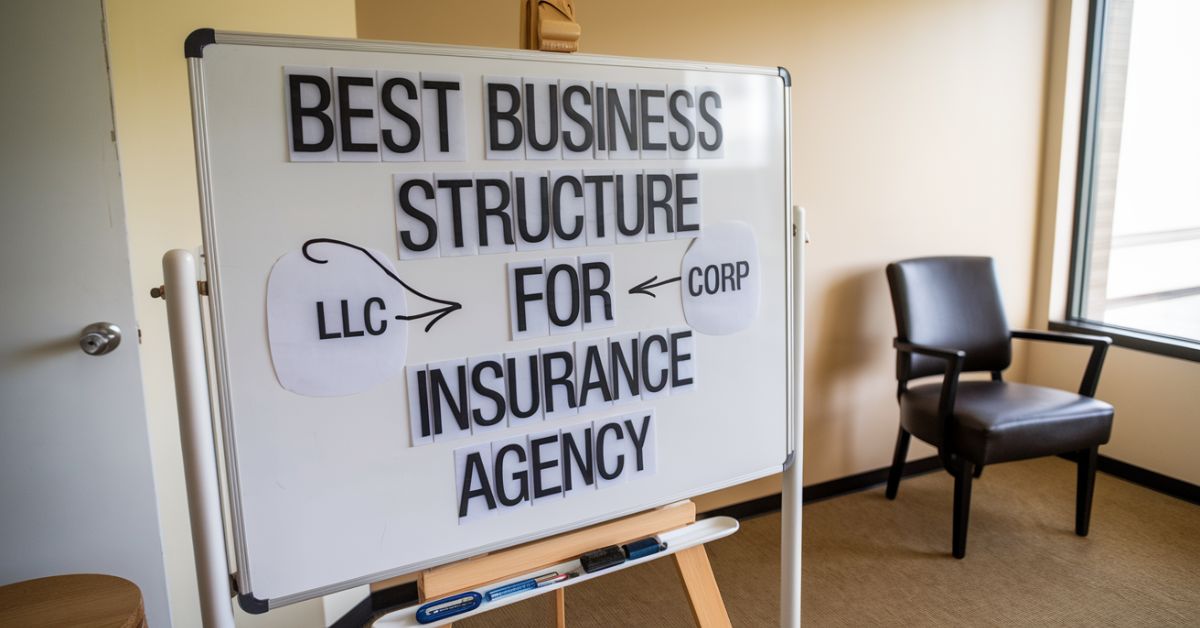Running a business in the USA comes with various risks, from property damage and legal liabilities to employee-related issues. To safeguard your business from these unforeseen challenges, having the right business insurance is essential. However, with so many types of business insurance policies available, it can be overwhelming to choose the right one. This guide will help you understand the key factors to consider when selecting business insurance to protect your company and its assets.
1. Assess Your Business Risks
The first step in choosing the right business insurance is identifying the risks your business faces. Different types of businesses have different risk profiles. For example:
- Retail Stores: May face risks related to customer injuries on the premises, theft, or property damage.
- Service-Based Businesses: Could be exposed to professional liability claims for mistakes or negligence.
- Manufacturing Companies: May encounter risks related to equipment breakdowns, employee injuries, and product liability.
Understanding your business risks will help you determine which types of insurance coverage are necessary.
2. Understand the Types of Business Insurance
There are various types of business insurance policies that cater to different needs. Here are some of the most common ones:
General Liability Insurance
This is one of the most basic types of business insurance and is essential for almost every business. General liability insurance covers:
- Third-party bodily injury: If a customer or visitor is injured on your business property.
- Property damage: If your business causes damage to someone else’s property.
- Legal defense costs: In case you face a lawsuit related to bodily injury or property damage.
Property Insurance
Property insurance covers damage to your business’s physical assets, such as buildings, equipment, inventory, and furniture. This is crucial for businesses that own property or have valuable assets.
Professional Liability Insurance (Errors and Omissions Insurance)
If your business provides services, professional liability insurance is essential. It covers legal costs if a client claims that your services caused financial loss due to negligence or mistakes. This is especially important for professionals like consultants, lawyers, accountants, and doctors.
Workers’ Compensation Insurance
If your business has employees, you’re legally required to carry workers’ compensation insurance in most states. This insurance covers medical expenses and lost wages if an employee is injured or becomes ill while on the job.
Business Interruption Insurance
Business interruption insurance helps cover lost income if your business is forced to close temporarily due to a covered event, such as a fire or natural disaster. This can help pay for operating expenses like rent and payroll during the downtime.
Commercial Auto Insurance
If your business uses vehicles for deliveries or employee transportation, commercial auto insurance is a must. It provides coverage for vehicle damage and liability in case of accidents involving business-owned vehicles.
Product Liability Insurance
For businesses that manufacture or sell products, product liability insurance covers legal claims related to injuries or damages caused by a faulty product.
Cyber Liability Insurance
With the increasing risk of data breaches and cyber-attacks, cyber liability insurance is becoming crucial for businesses that handle sensitive customer information. It covers the costs of data recovery, legal expenses, and notification to affected customers in case of a cyber-attack.
Business Owner’s Policy (BOP)
A Business Owner’s Policy (BOP) bundles several types of coverage, typically general liability insurance and property insurance, into a single, cost-effective policy. BOPs are designed for small and medium-sized businesses and can be customized to suit your specific needs.
3. Determine the Right Amount of Coverage
Once you’ve identified the types of insurance your business needs, the next step is determining how much coverage is necessary. The amount of coverage you need depends on factors like:
- Size of your business: Larger businesses typically need more coverage because they have more employees, assets, and liabilities.
- Industry risks: Some industries are inherently riskier than others and may require higher coverage limits.
- State requirements: Some states have minimum insurance requirements, especially for workers’ compensation and commercial auto insurance.
It’s crucial to get enough coverage to protect your business without overpaying for insurance that you don’t need.
4. Compare Insurance Providers
Not all insurance providers offer the same policies or prices. It’s essential to shop around and compare different insurance providers to find the best deal. When comparing providers, consider:
- Reputation: Look for insurance companies with a strong reputation for customer service and financial stability. You can check customer reviews and ratings on sites like J.D. Power and AM Best.
- Coverage options: Ensure the provider offers the specific types of coverage your business needs.
- Pricing: Request quotes from multiple providers and compare premiums, deductibles, and coverage limits. Keep in mind that the cheapest policy isn’t always the best – make sure you’re getting adequate coverage.
5. Consider Bundling Policies
Many insurance providers offer discounts if you bundle multiple policies, such as general liability and property insurance, into a single plan. Bundling can save you money while simplifying the management of your insurance policies.
For example, a Business Owner’s Policy (BOP) is a bundled package that can provide coverage for general liability, property damage, and business interruption in one policy, often at a lower cost than purchasing each policy separately.
6. Understand Exclusions and Limitations
Before purchasing a business insurance policy, carefully review the exclusions and limitations. These are the situations or types of damage that the insurance policy won’t cover. Common exclusions include:
- Intentional acts: Damage or injury caused intentionally by the business owner or employees is typically not covered.
- Natural disasters: Certain natural disasters, such as floods or earthquakes, may not be covered under standard property insurance policies. You may need to purchase separate flood or earthquake insurance.
Understanding the exclusions and limitations helps you avoid unpleasant surprises when filing a claim.
7. Review and Update Your Insurance Regularly
As your business grows and evolves, your insurance needs will likely change. It’s important to review your insurance policies regularly and update them as necessary. For example:
- If you expand your business and hire more employees, you may need to increase your workers’ compensation coverage.
- If you acquire new equipment or property, you may need to adjust your property insurance limits.
- If your business moves to a new location, make sure your new property is adequately covered.
Regularly reviewing your insurance policies ensures that your business remains protected as it grows.
8. Consult an Insurance Broker
If you’re unsure about what type of coverage your business needs, consulting an insurance broker can be helpful. Insurance brokers are professionals who can guide you through the process of selecting the right policies and finding the best insurance providers. They work with multiple insurance companies and can help you compare options, saving you time and money.
Conclusion
Choosing the best business insurance in the USA requires careful consideration of your business’s unique risks and coverage needs. By understanding the different types of business insurance, comparing providers, and reviewing your policies regularly, you can ensure that your business is adequately protected while saving money. Whether you’re running a small business or managing a larger enterprise, having the right insurance is essential to keeping your company safe from potential financial losses.


Leave a Reply